Why provoke the opposition and punish citizens?
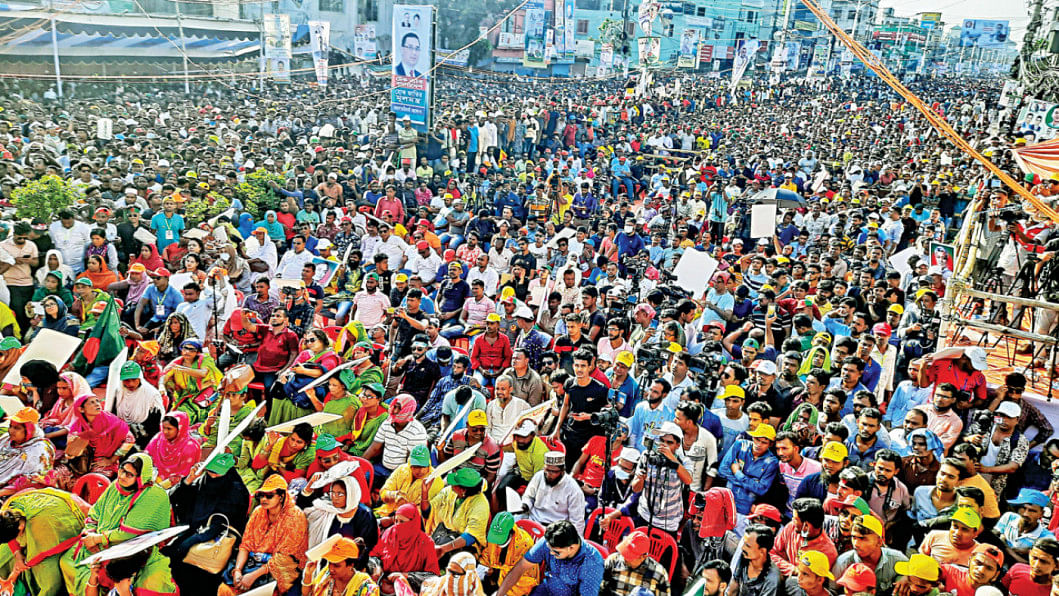
The diatribes meted out by the ruling Awami League leaders to the opposition BNP ahead of its scheduled grand rally in Dhaka has reached a new level of squabble in politics, making people nervous and worried over a potential confrontation. Friends and acquaintances have one common question to any journalist they meet: what's going to happen on December 10? These worries are not unreasonable. Recent developments, especially the evermore resurgence of the BNP's grassroots and supporters to defy all those obstacles put up by the ruling party, their cohorts and police makes it clear that the opposition is very much alive and kicking, and has not run out of steam in the last 16 years since its unpleasant exit from power.
Actions that have been replicated in each of the divisional rallies, so far, seems to be from the same playbook that includes not granting the preferred venue, enforcing a localised transport strike, clearly aimed at preventing people from attending the opposition rally, and police launching a campaign to arrest alleged suspects belonging to BNP on spurious grounds. That's not all. There are so-called vigilante actions by the local Awami League activists or their student and youth units, in the name of maintaining peace and resisting anarchy. But none of these tactics seemed to work. People have reached the venues by boat, vans and even by walking days early with puffed or flattened rice and molasses, and spent the night lying on the ground.
Then we heard from the ruling party's second in command, General Secretary Obaidul Quader, that the BNP would not get spared in December though they are getting mercy now. Since the BNP's month-long campaign against the government was launched, he has made "Khela Hobe" (won't be a walkover) a battle cry and used it in every speech he made whether indoors or outdoors, in parliament or a public meeting. One may ask if "Khela Hobe" is not a provocation, what else is? If allowing the opposition to hold public meetings is subject to discretion or goodwill gesture of the ruling party, then can that party claim it is committed to upholding the constitution? Doesn't it violate Articles 37 and 38 of our constitution?
Contrast in administrative actions regarding political rallies could not be starker when it comes to BNP and other parties. There were two mass gatherings in Khulna just five days apart in October. The first one was on the 22nd organised by the BNP, which prompted a virtual siege for 48 hours of the city as it was cut off from the rest of the country due to a sudden, but all out transport strike. The second meeting was on October 28, but the organiser was Islami Andolon Bangladesh led by Pir Mufti Syed Muhammad Rezaul Karim. There was no strike, no obstruction and no harassment of their workers by either the AL activists or police, which should be the norm in a democracy. Comparisons between the ruling party, Awami League's Dhaka district conference or Jubo League's national conference and the BNP rallies in Rangpur or Barisal are not even remotely logical as some privileges appeared to be exclusive for the people in power. For example, the ground where the Awami League held its Dhaka district conference would never be given to any other party for security issues due to its proximity to a number of key public installations (KPI).
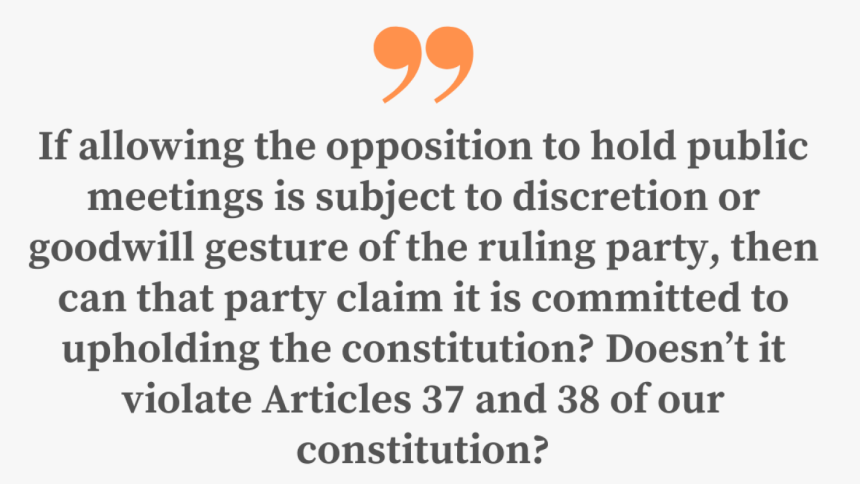
It is true that the government did not call the transport strike, but the claim that the government is not responsible is laughable as everyone knows about the dominance and control of the ruling party in those organisations representing transport owners and workers. Besides, according to the Road Transport Act 2018, it is the government who has sole authority to regulate and control all sorts of vehicles plying on the road. The licensing conditions for granting route permits clearly stipulate that no transport can suddenly pull out of service and cause disruption in public services. So, the government's inaction to end these strikes suggests some mystery, if not collusion.
Provocative languages used by ministers have two-fold implications – one is to encourage their supporters and ruling party activists to become more aggressive, which we have seen in almost all cities where the BNP held its divisional rallies. Whether it is intended or not, the aggression among their supporters only intensifies. Those images of hundreds of motorbike riding activists belonging to Chhatra League and Jubo League taunting BNP supporters on their way to the rally venue certainly raises the risks of violence. The inflammatory language can certainly provoke confrontation, which so far, the BNP leadership have remarkably managed to control. Whether and how long they can and will keep calm and maintain their protests peaceful remains an open question. Sadly, the latest statement by the AL general secretary questioning BNP's softer approach raises new questions about the intention of the ruling party as some observers allege that the government is desperate to find an excuse to crack down on the opposition.
Concerns expressed by foreign diplomats and representatives of various international organisations, therefore, are not unfounded. It is hard to explain to those unfamiliar with our political culture and bloodied past why politicians in high offices use undemocratic language that encourages trouble, instead of political debate and resolution of disputes through dialogue.
If the objective of using such battle cries is to scare off the supporters and sympathisers of BNP and make their rallies appear smaller, undoubtedly that tactic has failed. Instead, sufferings for the residents of those divisional cities have prolonged from a few hours to a couple of days. Ministers and leaders of the ruling party should understand that punishing common people to get to their political rivals can never be justified.
The planned siege of Dhaka, cutting it off from the rest of the country like those divisional cities, as reported by some newspapers, to foil, or, at the least, disrupt the BNP's grand rally in December, on the part of the government is wrong both morally and politically. It has already been proven how counterproductive this tactic is in relation to BNP's divisional grand rallies. Repetition of a failed strategy should stop now.
Kamal Ahmed is an independent journalist. His Twitter handle is @ahmedka1

 For all latest news, follow The Daily Star's Google News channel.
For all latest news, follow The Daily Star's Google News channel. 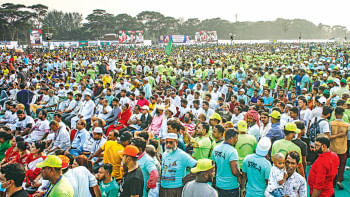


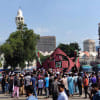
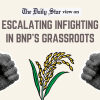
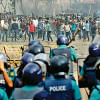
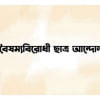



Comments